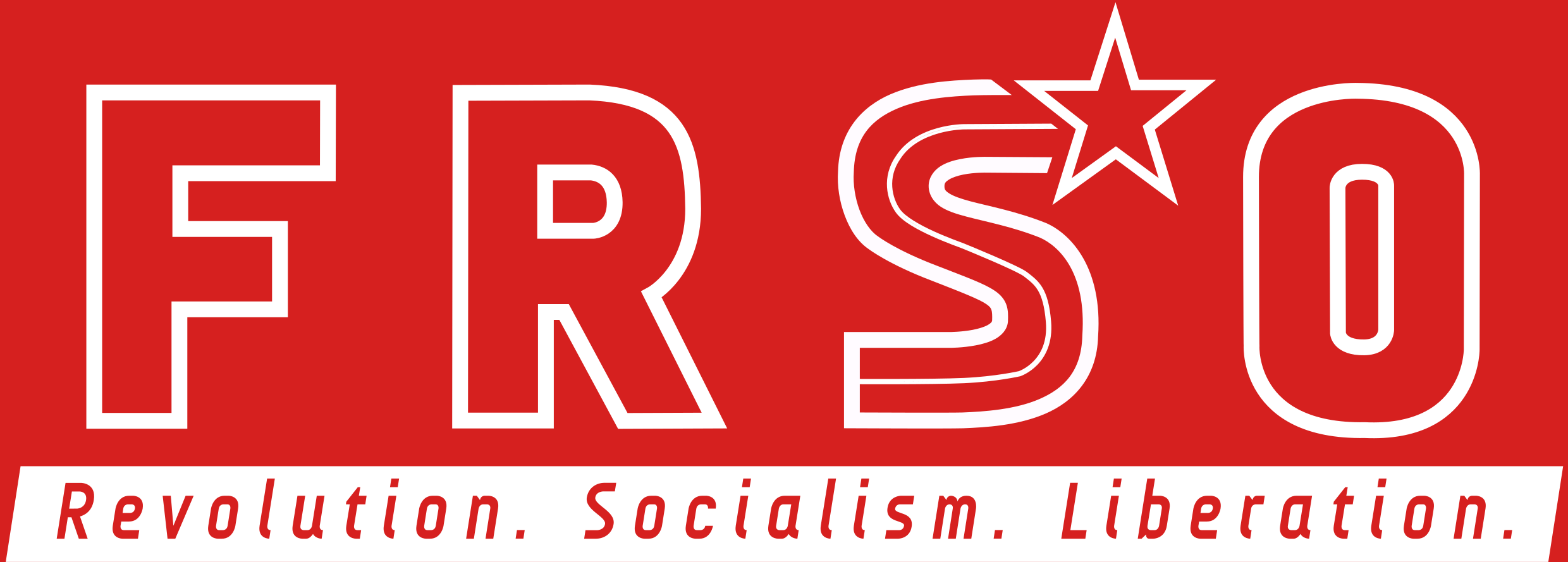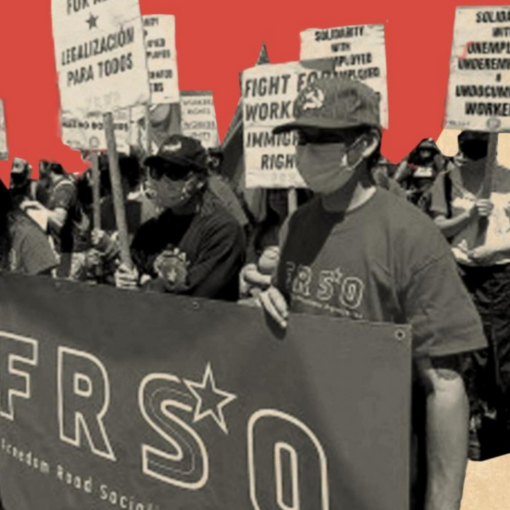Adopted at the 1997 FRSO Congress of November 1997. The two main decisions of the Congress were to further develop FRSO as a Marxist-Leninist organization and to deepen the line and practice concerning the National Question within the U.S.
[Note: This document is relevant to a split undertaken by right opportunists in 1999. You can see other relevant documents here.]
FRSO has always held that national oppression and white supremacy are the linchpin of capitalist rule in this country. If we believe this, then it is unacceptable to discuss strategy that does not aim the main blow at these things. No matter how we assess this period in terms of the political climate and the strength of the left, strategic thinking and organizational functioning must see the fight against racism and for national liberation as primary and connected to other aspects of the fight against capitalism in the US. Our failure to do this certainly jeopardizes the reputation that we are so proud of and that we so often talk about in terms of our strength and our special place on the left.
Adopting our central task at the last congress was appropriate. Deepening our ties in and recruiting from the poorer sectors of the working class and the national movements and building a socialist trend within these movements is based on the needs of the revolutionary movement in this period. It recognized that we need to organize the revolutionary forces, the so-called reserves, to aim the main blow at this stage of the US revolution. It also recognized that building the strategic alliance of the working class (represented by its most oppressed sections) and the national movements is crucial.
In order to carry out the strategic focus on the poorer sector and oppressed nationality movements, we need to strengthen the organization’s functioning.
-
- Deepen our work in oppressed nationality movements with a key task of building the left pole in these movements. Specifically:
- In pursuing the task of building the left pole, we take leadership from the oppressed nationality commissions in defining this task. Important steps towards this were taken at the July 4 nationalities conference.
- Build the Black Radical Congress as a broad organizational task of all districts.
- Institutionally support the oppressed nationality commissions.
- Build mass movements in oppressed nationality communities. Within these mass movements our priority is to develop working class leadership.
- Prioritize publications and study on these movements.
- Deepen our work in oppressed nationality movements with a key task of building the left pole in these movements. Specifically:
-
- Democratic centralism is essential for an organization that is attempting to organize for socialist revolution, no matter how small our group or how difficult the period. Functioning in a democratic centralist mode is part of the Marxist-Leninist tradition. To strengthen the organization’s functioning, both locally and as a whole, we propose:
- Base ourselves in the mass struggles.
- Build concentrated units of comrades applying Marxist-Leninist theory to practice, whenever possible in a single mass group or concentration of related areas of work.
- Develop district leadership which can guide and help the units in their work and in carrying our national line.
- Study and use Marxist-Leninist analysis and apply it to our political line.
- Develop an accountable, democratic centralist national leadership that gets local work sum-ups, provides broad analysis and leading line, coordinates organization-wide study and gives specific guidance to the mass work. Strengthen nationality commissions and tighten the relationship among commissions and between the commissions and national and local leadership.
- Follow through as an organization on decisions made at the congress; for example:
- interim meetings (national or regional) part way between congresses to evaluate the progress made on implementing decisions
- more particular guidance and city-by-city follow-up in carrying out the work
- more trips by leading people, visits to districts doing advanced work, and other methods that will broaden our ability to learn from one another and from our organization’s most effective work.
- Hold more trainings organized by the center like the district organizers’ training held a few years back, but also trainings for new members.
- Develop more studies like the one held in Philadelphia this past winter with people from New York and Minneapolis on the mass line, as well the NY-Philly joint study on patriarchy and accumulation.
- Use other methods of consultation, both horizontally and vertically within the organization, to assist districts and units to be better organized and to function more effectively.
- Democratic centralism is essential for an organization that is attempting to organize for socialist revolution, no matter how small our group or how difficult the period. Functioning in a democratic centralist mode is part of the Marxist-Leninist tradition. To strengthen the organization’s functioning, both locally and as a whole, we propose:
We feel these steps are important. To effectively engage ever broader numbers of social fighters in common struggle, we require a functional organizational practice. If we wish to commit to the project of engaging others in our work, to look beyond ourselves, and to construct a shared vision of a new society, we must be able to collectively set our tasks and sum up our pursuit of them.
-
- Clarify our self-identity.
- We identify ourselves as “a revolutionary socialist and Marxist-Leninist organization seeking to apply revolutionary theory in our mass work that draws from the rich revolutionary traditions of Mao Tse Tung thought, as well as from the theories of revolutionary nationalism, revolutionary feminism and environmentalism.”
- Clarify our self-identity.
-
- Continue to deepen our work in the poorer sectors of the working class. At present, various new developments offer important opportunities, and we must seize them.
- Draw on the strength of trade union-placed cadre.
- Organizing the South and Southwest is part of our strategic vision, and we should prioritize this work.
- Make it a priority to organize the unorganized. We recognize that we alone are not situated to take on this task. Black Workers for Justice, Jobs with Justice and the Central Labor Councils are examples of how we can participate in organizing the unorganized.
- Build on the successes of the urban poorer sector work, developed by districts in our organization to date.
- Deepen and develop our work with immigrant populations, who will continue to be a target of ruling class oppression and to play a dynamic role in resistance.
- Continue to deepen our work in the poorer sectors of the working class. At present, various new developments offer important opportunities, and we must seize them.
In all of our working class work, we look to work with others in the labor left to open and promote the broader revolutionary project.
- In order to build a revolutionary socialist party that can contend for power–and we do not exclude the possibility of other revolutionary socialist parties, particularly from oppressed nationality movements, which will contend for power together with us–we must develop Marxist theory in the U.S. at this point in history. To that end, we cannot go it alone. We will develop theory and practice by engaging in comradely struggle with other revolutionaries through our work in the mass movements.
Proposed at 1997 Congress by the North Carolina & Philadelphia districts and amended by the Congress.


